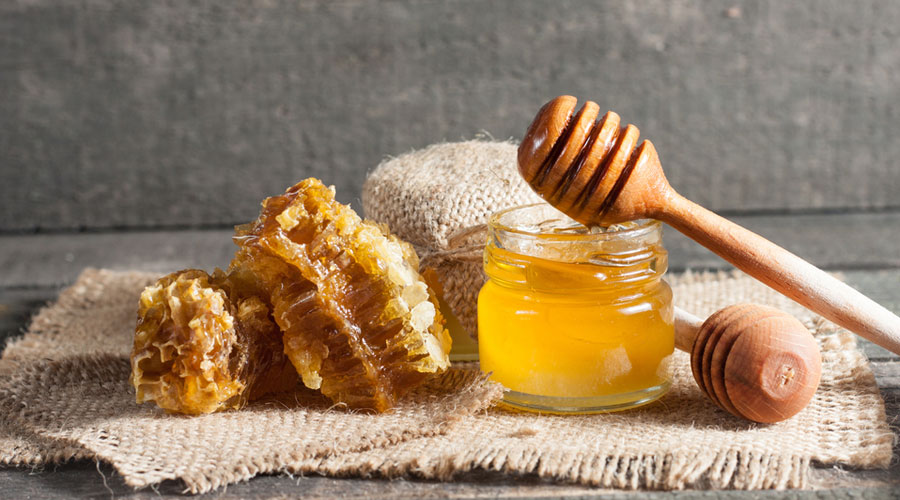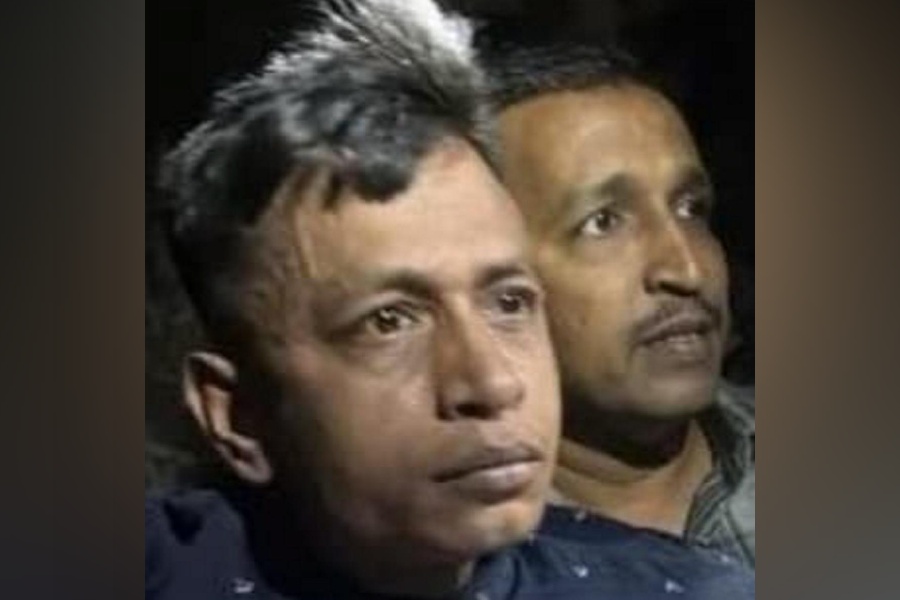The Delhi-based Centre for Science and Environment on Wednesday said its tests had found 77 per cent of honey samples sourced from big and small branded companies in India “adulterated with addition of sugar syrup”.
Under the regulations of the Food Safety and Standards Authority of India (FSSAI), adding anything to natural honey — including sugar syrups — before sale is illegal.
The CSE said its “honeygate” study had found that some Chinese companies were exporting huge amounts of these syrups to India and that their price was about half that of honey.
It said these companies’ advertisements on Chinese e-commerce portals like Alibaba said their products enabled adulterated honey samples to cheat the FSSAI’s tests.
“Out of 22 samples tested, only five passed all the tests,” CSE director-general Sunita Narain said.
Narain said: “Honey samples from leading brands such as Dabur, Patanjali, Baidyanath, Zandu, Hitkari and Apis Himalaya, all failed the NMR (nuclear magnetic resonance) test.”
While NMR tests are used globally to detect adulteration by sugar syrups, the FSSAI does not use them on domestic honey.
A Dabur spokesperson said the “recent reports seem motivated and aimed at maligning our brand” and insisted that Dabur Honey was “100 per cent pure” and that the company imported no “honey/syrup from China”.
The spokesperson said Dabur complied with all the FSSAI norms and had “NMR testing equipment in our own laboratory, and the same is used to regularly test our honey sold in the Indian market”.
An Emami spokesperson said the company’s “Zandu Pure Honey conforms to all the protocols and quality norms/ standards laid down by the government of India and its authorised entities such as FSSAI”.
The reactions of the other brands will be published as and when they issue them.
“Only 3 of the 13 brands (from which the 22 samples were sourced) – Saffola, MarkfedSonna and Nature’s Nectar (one of two samples) --- passed all the tests,” Narain said.
With the Union ministry of Ayush prescribing honey as an immunity booster in its pandemic guidelines, the sale of honey has skyrocketed, jumping 35 per cent in March alone, industry sources said.
India’s honey market, worth Rs 1,729 crore in 2019, was predicted to reach about Rs 3,060 crore by 2025, with trade experts clarifying this estimate had not considered the Covid push.
The CSE suggested that the Indian authorities knew about the purported adulteration, underlining how the government recently made NMR tests mandatory for honey that is to be exported but not for domestic honey.
“As of August 1, NMR tests have been made mandatory in India for honey that is meant for export, suggesting that the Indian government is aware of this adulteration business,” the CSE’s report says.
Further, the CSE accused the Indian regulator of sowing confusion over the adulterating agent.
“The FSSAI, in the past year, directed importers and state food commissioners that golden syrup, invert sugar syrup and rice syrup imported into the country were being used for adulteration of honey,” Amit Khurana, programme director with the CSE’s food safety and toxins team, said.
But these three kinds of imported sugar syrups “are either not imported in these names or are not indicted (by the CSE) for adulteration”, he said.
“Instead, Chinese companies are mostly exporting this syrup as fructose to India. Why did FSSAI put out what is clearly an erroneous order?”
The CSE claimed that some factories in India were manufacturing the syrup with Chinese technology.
A Dabur spokesperson said the “recent reports seem motivated and aimed at maligning our brand” and insisted that Dabur Honey was “100 per cent pure” and that the company imported no “honey/syrup from China”.
The spokesperson said Dabur complied with all the FSSAI norms and had “NMR testing equipment in our own laboratory, and the same is used to regularly test our honey sold in the Indian market”.
An Emami spokesperson said the company’s “Zandu Pure Honey conforms to all the protocols and quality norms/ standards laid down by the government of India and its authorised entities such as FSSAI”.
Red flag
Narain said the trigger for the investigation was the CSE’s discovery that while the sale of honey was going up, beekeepers were leaving the profession because of financial distress.
“We felt there was something amiss --- while the sale of honey was going up, why were the beekeepers in such a state?”
So, the CSE embarked on a bout of sleuthing that culminated in a series of tests in India and abroad, the entire exercise taking about five months, sources within the organisation said.
First, the CSE undertook an undercover operation to track down the Chinese companies from advertisements in Chinese trade portals and got hold of the syrups.
“To understand whether the sugar syrups would actually pass the laboratory tests undetected as claimed, the CSE then adulterated samples of pure honey,” Khurana said.
“What was shocking is that adulterated samples with 25 per cent and 50 per cent sugar syrup passed the test of purity (by Indian standards).”
The CSE then selected 13 of the bigger and smaller brands of processed and raw honey sold in India, and got 22 samples tested at the Centre for Analysis and Learning in Livestock and Food (Calf) at the National Dairy Development Board, Gujarat. Nearly all of them passed.
“However, when the same brands were tested using nuclear magnetic resonance (at a) laboratory in Germany,” the CSE said, “almost all big and small brands failed.”
Narain said: “We are hundred per cent confirmed about the findings.”
The CSE claims that over the past four years, 11,000 million tonnes of fructose syrup have come to India as “industrial raw material” from the Chinese companies that advertise their product’s ability to beat the Indian tests.
Narain told The Telegraph that adulterated honey was actually hurting those regularly taking it to improve their immunity.
“With a high level of sugar syrup, we are getting empty calories without benefits, which can lead to weight gain, which is detrimental in the fight against Covid,” she said.











